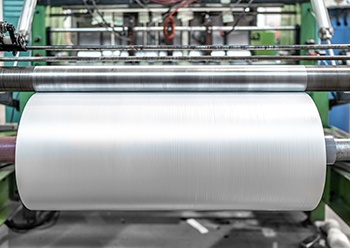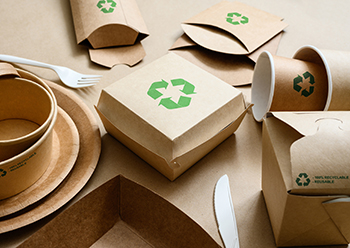

Inflation, sustainability and digitalisation as the top three trends that will impact packaging the most throughout 2023, according to analysts at a webinar hosted by GlobalData.
Analysts pointed out that GlobalData research shows that since Covid-19, the industry has seen a shift in mega-trend influences. The data showed that consumers valued ‘health and wellness’ as an important factor having seen it move from fourth in 2020 to first in the first quarter (Q1) of 2021. Easy and affordable was noted as being the second mega-trend influence after dropping to third as the world experienced a global pandemic, said a report in Packaging Gateway (https://www.packaging-gateway.com/analysis/top-trends-in-packaging-2023/).
The global pandemic caused a major disruption to normal behaviours and procedures, for businesses and consumers alike. The webinar stated that the packaging market suffered a slight dip of 1.1% as the pandemic started, before achieving growth of 6.2% between 2020 and 2022. As the world begins to move forwards after the pandemic, GlobalData predicts that the market will experience a growth of 12.4% by 2026.
Packaging plays an important role in how consumers receive and purchase various products. According to head of global packaging services, Dominic Cakebread, packaging for foods and beverages accounts for 87% of the market and 63% of overall packaging on the market share is held by flexible and rigid plastics. Cakebread added that the data shows the market shares haven’t really changed since 2008.
Cakebread said: “It’s not that easy to change from plastics overnight to substitute with other materials and the industry has adapted to using more recycled content and the resistance to move away from plastics has been quite strong.”
KEY TRENDS
Inflation: GlobalData analysts highlighted global inflation as a key trend set to impact the packaging industry. The data showed that 55% of global consumers are extremely concerned about the impact of inflation on their household budget. Analysts say that consumers are seeking cheaper alternatives which is affecting sales and manufacturers have to decide whether or not to absorb the costs or pass them on to the consumer.
2022 was seen as a perfect storm due to global disruptions such as climate change, Covid-19, war and geopolitical barriers. GlobalData analysts stated that volatility in prices has been difficult for businesses to manage and that global supply chain issues have risen a lot since 2022. The industry has seen that shorter global supply chains and increased localisation are gaining popularity to combat rising energy prices and storage.
GlobalData says that between 2020 and 2022 the number of cost saving jobs has risen. The data showed that corrugated packaging company Westrock posted 263 jobs whilst metal packaging company Ball Corp posted 261 jobs.
As the world experiences global inflation, the industry has seen a number of businesses seek solutions to combat rising prices. Analysts stated that multinational consumer goods company Unilever partnered with waste management specialists Terracycle to develop circular packaging solutions for its Knorr soups and sauces, which resulted in a reduced environmental impact and cost savings. Diageo’s Johnnie Walker adopted a paperised style of packaging which is seen as a sustainable option that saved costs.
Environment: Environmental concerns remain a key factor in 2023. Various global regulations and legislations have been put in place to help address environmental issues. In the US, states such as California and cities such as Seattle and San Francisco, have implemented local laws to help reduce packaging waste. The UK introduced its Extended Producer Responsibility (EPR) scheme to hold producers responsible for the disposal of their packaging waste.
GlobalData analysts explained that initiatives such as the EU Plastics Strategy create regulatory incentives to increase refillability and that Coca-Cola had responded by creating a new warehouse dedicated to refillable glass bottles.
GlobalData says that 50% of consumers consider it essential to know where a product’s packaging can be recycled and how to recycle it while 27% of those surveyed say it’s essential for a product’s packaging to be recyclable.
GlobalData Associate analyst Saad Farooq said: “Companies need to comply with regulations and offer refillable packaging options to remain competitive.”
Analysts also explained that the use of Deposit Return Scheme (DRS) strategies has grown in popularity globally, which has correlated with significantly high recovery rates for glass and PET bottles.
Digital: Farooq says the data shows that the industry is prioritising digitalisation in packaging as well as with its supply chain processes. Farooq added that 41% of global consumers had a preference for digitally advanced products while 64% see high-tech features as essential or nice to have when selecting purchases.
As packaging is the essential delivery system for such elements, GlobalData showed that the industry has seen a 60% increase in digitalisation mentions in 2021 compared to 2020.
“This shows companies are thinking about investing in new technology and improving data management as it has become crucial for addressing digitalisation challenges and an opportunity to meet growing consumer demand.
GlobalData analysts explained how British multinational packaging company DS Smith had automated its warehouse operations with AVGS. Analysts explained that automation can help improve supply chain efficiencies, increase resilience to disruptions and improve ESG efforts.

